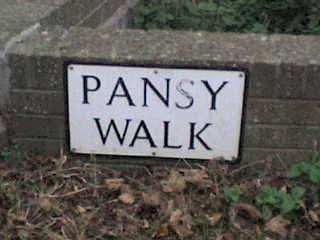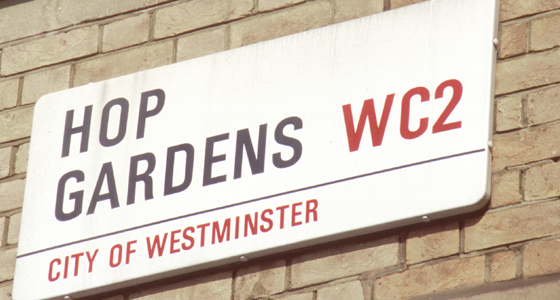THURSDAY
Plenary: Pieter Muysken (Nijmegen), 'Endangered language documentation and sociolinguistics: the case of Bolivia'
Session 1:
Miriam Meyerhoff (Edinburgh) & James Walker (York, Canada)
'On the social salience of grammatical variation: existentials in Bequia (St Vincent and the Grenadines)'
Session 2:
Paul Kerswill, Arfaan Khan & Eivind Torgersen (Lancaster)
'Multicultural London English and linguistic innovation'
Session 3:
Frans Gregersen (København)
'Bridging the gap: from macro-macro sociolinguistic analyses to variationist analyses and beyond'
Poster session
- Nadia Nocchi (Zürich), 'Phonetic variants for social variables: some remarks on labiovelars in Tuscany'
- Ariën van Wijngaarden (Amsterdam), 'Ethnic variation: morpho-syntactic aspects of Moroccan Dutch and Turkish Dutch'
Session 4:
David Britain, Jennifer Amos & Juliette Spurling (Essex)
'Yod-dropping on the East Anglian periphery'
Session 5:
Carmen Llamas & Dom Watt (York)
'Rhoticity in four Scottish/English border localities'
Session 6:
Sander van der Harst (Utrecht)
'Regional variation in Standard Dutch vowels'
Session 7:
Isa Buchstaller & Karen Corrigan (Newcastle)
'Towards a syntactic atlas of Northern England: micro and macro aspects of the interplay between grammar, geography and gender'
Session 8:
Heinrich Ramisch (Bamberg)
'The Northern Subject Rule and its 'northernness': a geolinguistic perspective'
Session 9:
Monika Edith Schulz (Freiburg)
'Past possession and past obligation in traditional British English dialects: the case of had got to'
FRIDAYPlenary:
Charles Goodwin (UCLA)
'The categories Speaker and Hearer as interactive processes'
Session 1:
Stefan Engelberg (Mannheim)
'Language policies and language contact in the German colonies in the South Pacific'
Session 2:
Bettina Beinhoff (Cambridge)
'Accent and identity: are some non-native speaker accents of English 'better' than others?'
Session 3:
Julia Sallabank (SOAS)
'Endangered language maintenance and social networks'
Poster session
- Hanna Lappalainen (Helsinki): 'Macro and micro perspectives on explaining variation in the use of personal pronouns'
Session 4:
Katharina Straßl (Bern)
'L1, Standard German and local dialect: language choice of immigrant children in the German-speaking part of Switzerland'
Session 5:
Charlotte Gooskens & Sebastian Kürschner (Groningen)
Swedish-Danish word intelligibility
Session 6:
Leen Impe (Leuven)
'Mutual intelligibility of Dutch language varieties: linguistic and extra-linguistic determinants'
Session 7:
Csilla Bartha (Eötvös Loránd, Budapest)
'Language shift in Romani-speaking communities in Hungary: combining macro and micro interpretations'
Session 8:
Remco Knooihuizen (Edinburgh)
'The interplay of language shift and new-dialect formation: the development of Shetland Scots'
Session 9:
Joseph Gafaranga (Edinburgh)
'Towards an interactional model for language maintenance in immigrant contexts'
Plenary
Jasone Cenoz (Euskal Herriko)
'Multilingual educuation for minorities: research methods and achievements'
SATURDAYSession 1:
Michael Hornsby (Southampton)
'The thwarting of the linguistic subordination norm: whom does it serve?'
Session 2:
Mathilde Jansen (Meertens Instituut)
'Dialect levelling on the island of Ameland' -- cancelled
Session 3:
Wilbert Heeringa & Frans Hinskens (Groningen)
'Sound change in Dutch dialects: 1874 versus 1996'
Session 4:
Meilute Ramoniene (Vilnius)
'Age and language choice in multilingual settings of Lithuania'
Session 5:
R Vandekerckhove (Antwerpen)
'Intralingual subtitling of Dutch on Flemish television: contradictory evaluations of the linguistic scene in Flanders'
Session 6:
Sabine Jautz (Siegen)
'Relational work and constructing identity: expressions of gratitude in British and New Zealand English radio phone-ins'
Poster session
- Golnaz Nanbakhsh (Edinburgh), 'Address terms in Tehran Persian: gender, politeness and language attitudes'
- Ifigenia Papageorgiou (Edinburgh), 'Linguistic heterogeneity in the Greek educational system: a sociolinguistic approach to the 'cross cultural' policy'
- Elma Nap-Kolhoff & Tamara van Schilt-Mol (Tilburg), 'Short and middle-long-term effects of early childhood education in the Netherlands on children's Dutch language proficiency'
Session 7:
Nanna Haug Hilton (York)
'The variation and social meaning of stress assignment in Hønefoss Norwegian'
Session 8:
Terttu Nevalainen (Helsinki)
'The diffusion of linguistic changes in real time: leaders, laggards and the in-betweens'
Session 9:
Catharina Peersman (Leuven)
'"Litteris vulgariter in lingua romana expositis": the use of Old French in the charters of the abbey of Ninove (1137-1350)'
Plenary:
William Labov (U Penn)
'Cognitive capacities of the sociolinguistic monitor'
SOME TALKS I WOULD HAVE LIKED TO SEE
- Kutlay Yagmur & Eveline van Kooi (Tilburg), 'Language maintenance and shift patterns of Dutch immigrants in Turkey'
- Robert Lawson (Glasgow), 'A violent vernacular? Unpacking the associations between language and violence in Glasgow'
- Rias van den Doel (Utrecht), 'Similarity between L1 regional variation and L2 deviation, and its implications for the language learner'
- Mercedes Durham (Glasgow/Aberdeen), '"The dialect doesna seem to be very cool": language attitudes in young Shetland speakers'
- Jenny Nilsson & Margareta Svahn (SOFI, Sweden), 'Context influence on intra-individual dialect variation: the case of [r] and [R] in West Swedish teenager conversation'
- Susanne Wagner (Freiburg), 'Frequencies, quality and quantity: how best to analyse null subjects in English'
- Søren Beck Nielsen, Christina Fogtmann & Torben Juul Jensen (København): 'From community to conversation, and back: generic use of second person pronouns in Danish'
- Ulrike Vogl & Matthias Hüning (FU Berlin), 'Why Dutch? how to account for changes in language use over time'
MY PRIZESBest talk: Nanna Haug Hilton
Best discussion after talk: Heinrich Ramisch
Best plenary: Charles Goodwin
Best poster: Nadia Nocchi








